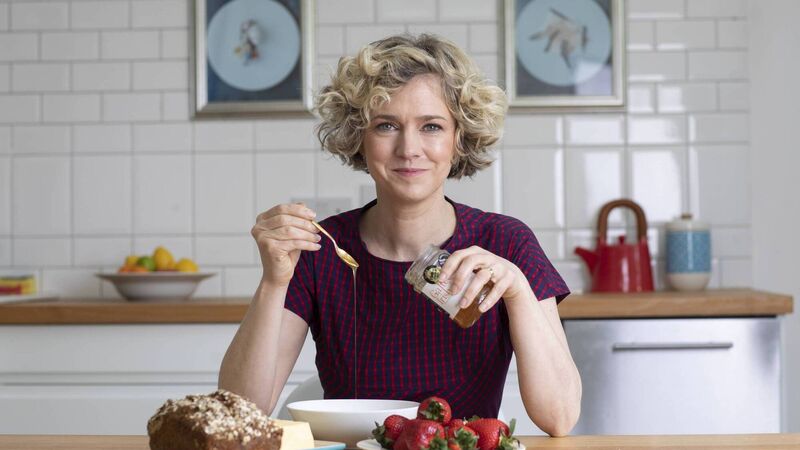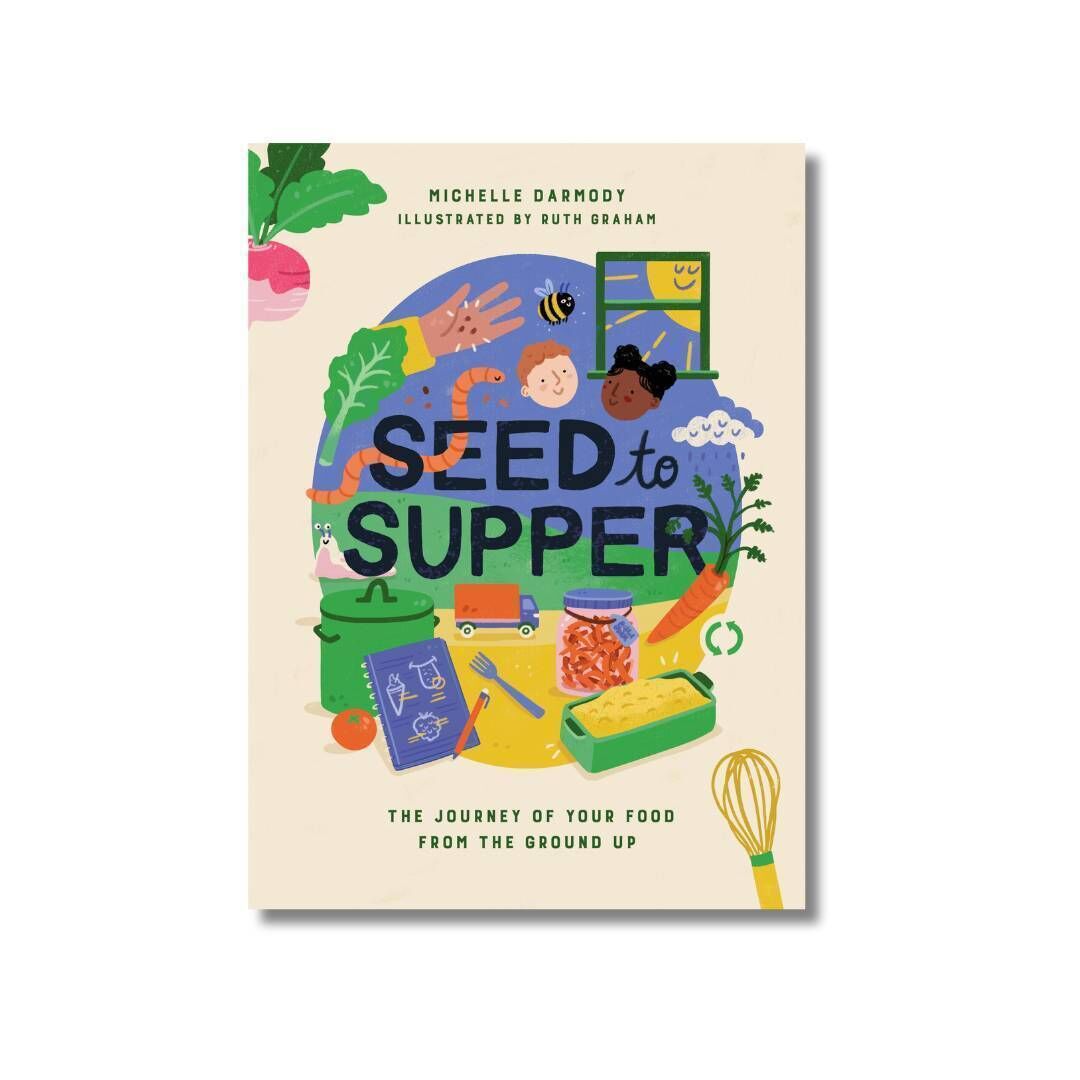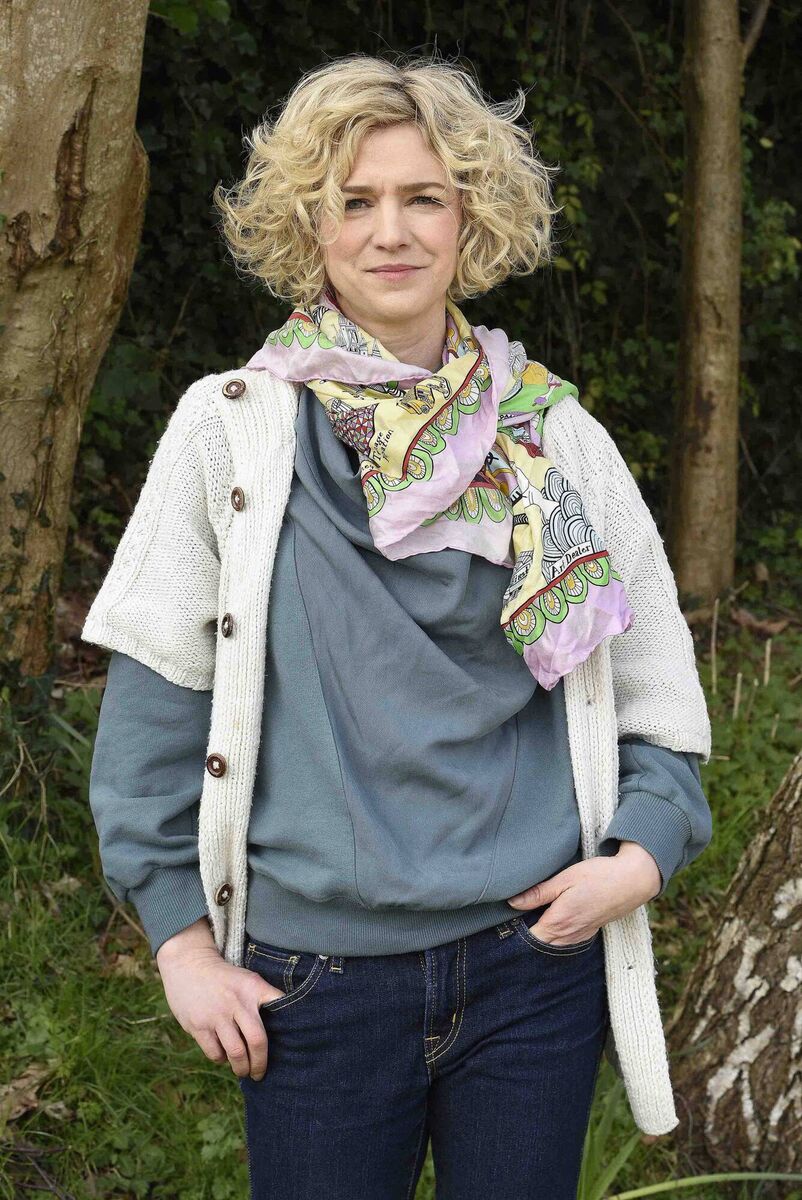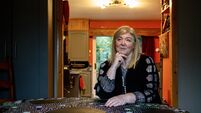Cork-born food educator and expert launches new book

Michelle Darmody has written a book called Seed to Supper, The Journey Of Your Food From The Ground Up. Picture: Fergal Phillips.
Food – how to grow it, how to cook with it, where it comes from, and how we eat – are among the most complex ideas and actions we engage with every day, automatically and without any greater thought than how to sate our appetite.
Thinking about the journey our food takes, from a seed all the way through to supper, can transform our appreciation for what it takes to get food to our plate. It also reveals the impact food can have on our health and environment; how different foods travel and the food cultures that come with them.
How to explain all this complexity to children?
Cork-born Dr Michelle Darmody is a sustainable food education expert. Her PhD work resulted in a collaboration with An Taisce to develop the Green-Schools module in Food and Biodiversity nationally, and she was named an Ashoka Changemaker for her work in food and empathy. She founded two successful cafes in Dublin, Cake Café and Slice, and her love of baking continues in her weekly column written for the Irish Examine.
But it is her passion for food education that drives her and recently Michelle launched her new food book for children, Seed To Supper: The Journey Of Your Food From The Ground Up.

I asked Michelle about her book, and why children need to be part of the conversation about where our food comes from.
“ Seed To Supper is about the journey and story of food, where it comes from and how we share it together,” says Michelle.
It begins with the seed and the soil, two vitally important things for everything we eat in life, and brings that journey through from growing of food, and the picking of food.
“There is a critical ability needed when buying food or navigating the food world as a young person in modern life, so there’s a chapter about buying food, and how food is marketed. Then to eating and how different cultures share food and food traditions across the globe, and why humans like to spend time together around the table.”
Michelle’s doctoral research, including food literacy and her work for Green-Schools, laid the foundation for how to approach writing a food book for children.
“I had worked with children and food in lots of different ways over the years. I always found that going into a classroom doing something and leaving again was like a stop gap.
The genesis of the PhD was how to create something that was more embedded within the school year.
“A lot of what I learned from working with children in different schools around the greater Dublin area is in the book, and what they wanted to learn in the kitchen.”
Michelle’s research responded to how she saw children reacting to what was presented in the classroom. The children lead the way in how learning could achieve the greatest impact.

“I didn’t think there was any point in doing this research without getting the young person’s voice within it, so having the feedback from children about what they wanted to learn was hugely important. Generally, I think that is the foundation for good education.”
Seed To Supper is written with 9-12-year-olds in mind, but, says Michelle, there is learning in it for everyone, even adults.
Between 9-12, children can pick the book up and read it for themselves, but a parent could pick it up and read it with or to a child. There are loads of bite-sized pieces with lots of information, so as a family you can share and cook and use the recipes and activities together.
As well as being chock-full of information, throughout are activities for children to engage with food in creative ways, sometimes incorporating maths, science and other subjects. Recipes are where Michelle hopes children can embrace being creative with their food.
“There are activities in all the sections, but those in the growing and cooking sections are probably more building block exercises for self-sufficiency, especially in the kitchen. There is so much creativity in cooking; room for change and having fun. If you have an apple tart recipe but you pick a load of blackberries or have some nice raspberries, you can add them into it.
“The idea for children is that things can change and adapt, and they don’t have to be so structured. Having some building blocks, knowing how to grate, sauté or how to season, are foundational things they can learn at that age when they’re going out on their own a little more. When you have those skills behind you, it’s easier to think of food in a more creative way.”

Ashoka Changemakers are recognised for their ability to create large-scale social change, and Michelle’s work in this area, including inclusive food projects such as Our Shared Table, has shaped her vision for making change possible.
“If you look at how food has been taught generally, not just in Ireland but around the world, there has been a health focus on the body - what is good or bad, what we should or shouldn’t consume.
There’s ever more research showing that’s not the best approach if you want to teach children about food.
“For me, the idea of change around that was very important and investigating how we make change: how does that happen, how we can look at food in a different way; not just something that affects our bodies, but how it affects our culture, our enjoyment, our life, our social interactions. Also, our family. A lot of our gatherings happen around food.
“Food affects everything, not just our health, so instilling enjoyment and pleasure in it and an approach to food so it’s not something you only have to be careful of; it’s also something you can enjoy.
“It’s tricky because food is a very emotive thing for many people and for many reasons culturally, religiously, for health – there are loads of reasons why people eat in different ways. It’s very hard to sum everything up, but by looking at food in a holistic way, hopefully we can generate change around how we approach food in education. I hope Seed To Supper does that.”
Food is complex, but the language used in Seed To Supper is succinct, clear, non-judgmental, and empathic. I wondered if writing in this way for children was challenging.

“I enjoyed it and wanted the book to speak to a child the way I would. I have a daughter and lots of nieces and nephews; I’ll always answer a question very honestly and maybe just simplify the language
Children aren’t any less intelligent, they just don’t have the tools to use language in the way we do. When you’re in a classroom with kids and chatting, they have intelligent, complicated questions for you. They are hungry to find out a lot and you learn so much from them.
“They want to be in the dirt. One of their favourite exercises was putting a little picture frame down and they’d count how many wiggly things were in the soil. The shrieks and the laughs – they really want to get into things and learn.”
A key skill for anyone navigating the world of food is critical thinking. It stokes imagination, questioning, and empowers children to make decisions for themselves. The book deals with surprising issues, such as GMOs in food, circular food systems, food marketing and regenerative agriculture – topics that require critical thinking and awareness.
“Critical thinking is vitally important to food education, and when it comes to food you shouldn’t be didactic around what’s right or wrong because everyone’s world and everyone’s access to food is completely different.
“Diet is extra complicated because it’s accumulative. Having ice cream every now and again is no harm to anyone, but having it every single day of your life is. It’s why you must present the facts and provide the ability to reflect critically on those facts.”
The book also deals with how companies use psychology to market certain foods directly to children. The Buying Food section reveals how, for example, foods packaged in yellow and orange can make you feel hungrier, or how frequently children are targeted with food advertising before they even get to school in the morning.
Writing on these issues is why Seed To Supper, although written for children, is essential for parents.
“Companies making that kind of food have marketing budgets that far outstrip any health messaging in Ireland and UK.
They don’t do it for no reason. It’s a huge industry, there’s psychology behind it and children must navigate that every day.
“How many times, and where, does a child see food advertising each morning before they got to school? That’s their lived reality, and we must try and equip them for it as best we can.”
Seed To Supper also encourages children to learn about how food and food cultures travel.
“Tomatoes didn’t originate in Italy! Food has always travelled the globe; there is no food culture in isolation,” explains Michelle, “and I think it adds to the richness of life and food, and also for more direct reasons.
“I was working with the UNESCO Chair in Children, Youth and Civic Engagement in Galway on Food and Empathy and developed a course for them with Foróige. They had been working on activating social empathy and approached me to work with them on the food and empathy side of it. It was great that they recognised food can be such a great connector across cultures.
“We worked with groups of teenagers and used food to start conversations among groups of people that might not use the same language or have the same background. It was a powerful way for them to talk and was the quickest they’d ever seen a group come together and become friends and chat.
Food can bring people together across cultures. You don’t have to share the same language; you can eat together and there is so much to learn from experiencing other people’s food.
The book is peppered throughout with great activities, such as how to make plastic from milk or plant a pizza. The activities incorporate lots of other skills: maths, botany, biology, gardening and cooking, being outdoors.
“The most important thing in food education is instilling enjoyment. Food is not about calorie counting but something you can enjoy and be part of your life. There are so many ways in which food can link into our lives – maybe even the next generation of food writers!”
Michelle’s daughter, Della, recently turned three years old. While Della might not be the target audience for Seed To Supper, has her presence been influential?
“It’s brilliant to see the world through her eyes. I have raised beds at home, and we do a bit of growing, so for her to see and experience it; for her to know that we’re going out to pick even just some herbs, I love to be able to do that with her.”







 App?
App?


